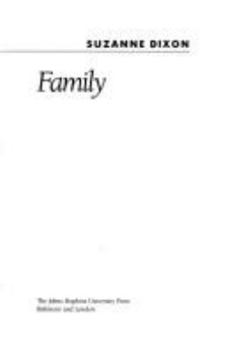The Roman Family
Select Format
Select Condition 
Book Overview
Unfaithful spouses, divorce and remarriage, rebellious children, aging parents-today's headlines are filled with issues said to be responsible for a "breakdown" of the traditional family. But are any of these problems truly new? What can we learn from the ways in which societies dealt with them in the past? Suzanne Dixon sets the current debate about the family against a broader context in The Roman Family , the first book to bring together what historians, anthropologists, and philologists have learned about the family in ancient Rome. Dixon begins by reviewing the controversies regarding the family in general and the Roman family in particular. After considering the problems of evidence, she explores what the Roman concept of "family" really meant and how Roman families functioned. Turning to the legal status of the Roman family, she shows how previous studies, which relied exclusively on legal evidence, fell short of describing the reality of Roman life. (Many relations not recognized by law-the slave family, for instance, or the marriage of imperial soldiers-were tolerated socially and eventually gained some legal recognition.) Other topics include love and other aspects of the institution of marriage, the role of the children in the family, how families adjusted to new members, and how they dealt with aging and death.
Format:Hardcover
Language:English
ISBN:0801841992
ISBN13:9780801841996
Release Date:April 1992
Publisher:Johns Hopkins University Press
Length:279 Pages
Weight:1.20 lbs.
Dimensions:1.1" x 5.8" x 8.8"
Customer Reviews
1 rating
good introduction
Published by Thriftbooks.com User , 24 years ago
Dixon has provided us with a great introduction to that basis institution of Rome, at least in the view of the Romans themselves: the family. Her interpretations of the evidence may stir disagreement at times, but her logic and use of evidence is solid for the most part. I reader needs a good background in basic Roman law and history to find this book truly useful however.






